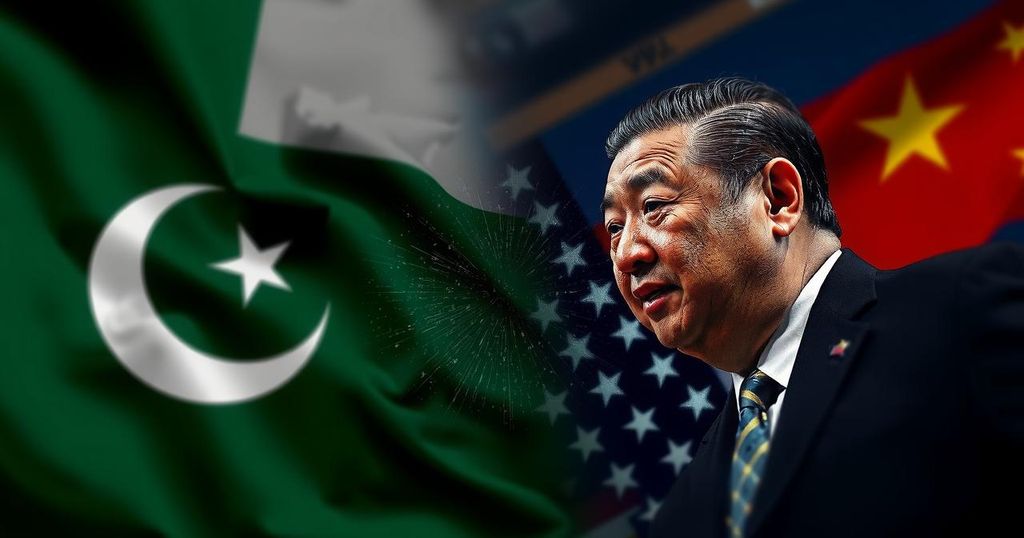Following Donald Trump’s re-election, the relationship between Pakistan and the U.S. faces scrutiny, particularly regarding support for former Prime Minister Imran Khan, who is currently jailed. Analysts contend that U.S. interests may not align with Khan’s hopes for intervention. Key issues include Pakistan’s increasing ties with China and the low priority of its political situation within Trump’s foreign policy agenda.
As Donald Trump embarks on a second term as President of the United States, the dynamics of Pakistan’s relationship with the U.S. are poised for evaluation, particularly in the context of former Prime Minister Imran Khan, who remains incarcerated. Following Trump’s electoral victory, Khan extended his congratulations via social media, emphasizing hope for mutual respect and democracy. However, analysts suggest that Pakistan may not emerge as a primary focus for Trump, despite Khan’s expectations of potential intervention on his behalf. Pakistan’s officials affirm their commitment to maintaining relations based on mutual respect, with an emphasis on noninterference in domestic affairs. Insights from political experts suggest that Trump’s administration is likely to prioritize other global issues over engaging deeply with Pakistan’s political situation. The complicated geopolitical landscape, notably including U.S.-China relations and issues in the Middle East, complicates Pakistan’s position. Islamabad’s strategic partnership with China might further complicate any overt U.S. interest in influencing Pakistan’s political landscape. The anticipated continuation of reduced U.S. aid could also heighten Pakistan’s reliance on China, exacerbating the delicate balancing act between the two superpowers. As the United States tends to its global interests, it remains to be seen how the evolving landscape will impact Pakistan’s regional position and its ongoing relationship with both China and the United States.
The article focuses on the implications of Donald Trump’s re-election for U.S.-Pakistan relations, especially concerning the ongoing legal and political implications for Imran Khan, Pakistan’s former Prime Minister. Despite Khan’s expectations for intervention by Trump on his behalf, analysts suggest that Pakistan may not be a significant focus for the new administration, instead facing challenges such as its dependency on China and internal political complexities that could strain its relations with the U.S. The historical context of U.S. aid to Pakistan and Trump’s prior criticisms of the country also frame this analysis.
In summary, while Imran Khan’s team hopes for U.S. intervention following Trump’s victory, analysts remain skeptical about the likelihood of substantial engagement, given that Trump’s administration may prioritize pressing global issues over Pakistani affairs. Concurrently, Pakistan’s increasing reliance on China could further complicate its diplomatic stance with the United States, suggesting that any significant shifts in relationship dynamics are improbable. Pakistan may expect limited engagement focused mainly on economic collaboration, climate change, and counterterrorism efforts.
Original Source: www.aljazeera.com






